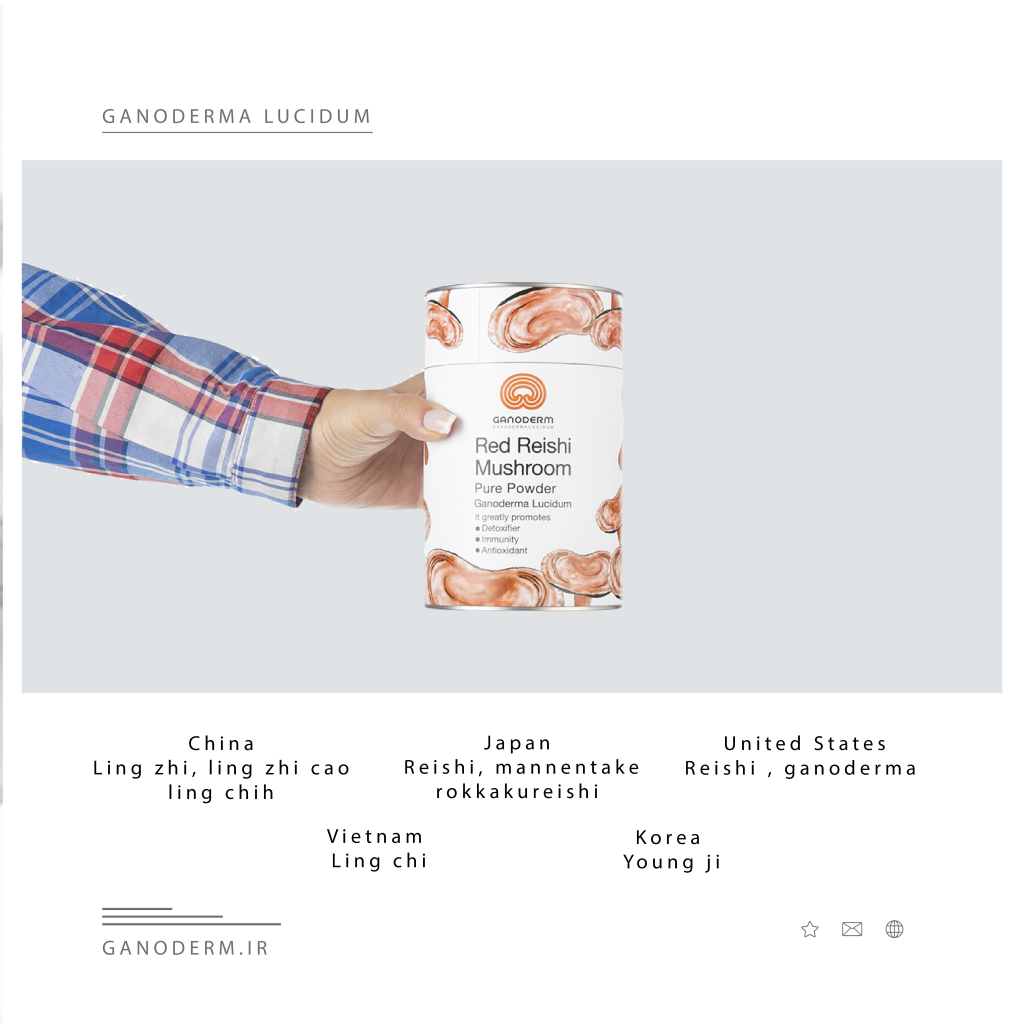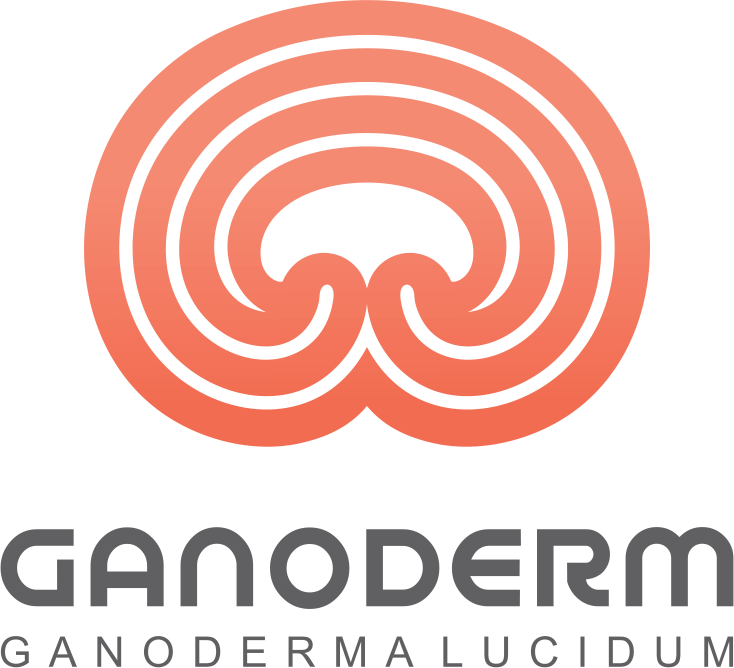Ganoderma Lucidum
Ganoderma Lucidum
Ganoderma Lucidum or reishi mushroom, a reddish laccate species of Ganoderma, is an annual fungus of the genus Ganodermataceae. This plant is a brown mushroom with a long, slender stem that is known for being a plant of historical and ancient origin. The history behind Ganoderma Lucidum reaches more than 4,000 years, especially in the Orient. It also has a limited distribution in Europe and parts of China, where it grows mostly on decaying hardwood trees.
Ganoderma Lucidum has 44 bioactive components from which its properties are derived. The effect of the consumption of different forms of this fungus has been studied in various humans and animals. Some of the benefits have been identified and further studies are needed to definitively discover the whole properties.
 Reishi Mushroom
Reishi Mushroom
Reishi mushroom, a Japanese known name for Ganoderma lucidum, is a type of fungus which grows in hot and humid regions of Asia. Reishi has been a regular member of oriental medicine for thousands of years.
Reishi mushroom does not have a pleasant smell and taste, and its raw material cannot be eaten. In so many countries, except China, Japan, and Korea, this fungus is consumed in combination with various foods or infusions, especially powdered.
The Chinese believe that this mushroom is a symbol of health, longevity, happy life, luck, and also immortality.
Benefits and Uses
Ganoderma Lucidum, a wonderful plant of nature, is a well-known frequently used mushroom in traditional Chinese medicine. This Ganoderma lucidum helps the prevention and treatment of bronchitis, allergies, hepatitis, and immunological disorders. As long as it has anti-oxidative effects when supplemented, it is known as a good anti-cancer and is used for cancer treatment.
Ganoderma lucidum is high in triterpenes and polysaccharides amount which comes up with the antiviral, antibacterial, and antifungal effects and ethanolic and water-soluble extracts. This has put a benefit for this fungus to be useful in preventing and treating viral disease by killing viruses such as HSV, HIV, and HPV.
On the other hand, you can see how Ganoderma lucidum is able to treat fatigue, high blood pressure, high cholesterol, and in some cases, inflammation by bolstering the immune system. It can also reduce damage to the cells of the blood vessel walls.
Reishi, more specifically, is a good factor to help the body control blood sugar levels, immune system issues, and liver cell regeneration and problems.
This fungus has also been effective in the reduction of fatigue, as once mentioned, and depression, which is the result of improving the quality of human life. According to a research study on 132 people suffering from neurological weaknesses, 8 weeks of eating Ganoderma mushroom can help reduce fatigue and make people feel more healthy.
By the list below, you can see cases for which Ganoderma is effective in improving and treating:
- Acne
- AIDS
- Allergy
- Asthma
- Blood pressure
- Blood sugar
- Cancer, especially prostate and breast
- Depression
- Diabetes
- Digestive system & stomach ulcer
- Fatty liver and liver disorders
- Gout
- Heart health
- Hyperglycemia
- Infertility
- Migraine
- Multiple Sclerosis (MS)
- Parkinson
- Rheumatism & Osteoarthritis
- Sensitivity
- Strengthening the immune system
- Stress and anxiety
- Thyroid
- Urinary Tract Infection
- Vitiligo
Possible Side Effects
Ganoderma Lucidum is often well-tolerated with some significant side effects. But, like all other herbal and chemical drugs, it has few side effects in the case that the dosage is not observed. Some mild side effects have been reported for Ganoderma, usually due to the body’s responses to detoxification or overuse of it.
Body responses to Ganoderma contain sneezing and allergic reactions, a blood thinner, digestive problems, potentially triggering bloody stools, vertigo, easy bruising, nose bleedings, skin itching, acne, blood rashes on the stool, and dry nose, mouth, and throat.
Ganoderma should be avoided in people who are taking anticoagulants like Warfarin, Aspirin, Heparin, and nonsteroidal anti-inflammatory drugs or other cases who have surgery, even denial surgery, soon as it may increase the risk of bleeding of body.
In addition, there is a possibility of drug interaction for those who use supplements or herbal supplements that prevent normal blood clotting or lower blood pressure such as fish oil and stale supplements.
Ganoderma may also drop blood pressure and so, should be avoided in people who are taking antihypertensive medications. Ignoring this may cause low blood pressure or (hypotension), blurry vision, triggering dizziness, fatigue, and nausea.
Since there is not enough safety research for the possible side effects, Ganoderma has to be avoided in children, pregnant women, and breastfeeding mothers.
Dosage and Preparation
Ganoderma Lucidum has a standard dosage depending on the way its supplement is formed. Therefore, you should care about how much you want to take and should prevent overuse of it. By a moderate and balanced consumption, you will experience a healthy, vitality, and more energy in life.
There is no complete and specific guideline directing the appropriate use of Ganoderma supplements. The thing is that you should not start with high doses of mushrooms in a day.
The standard dose for the basic extract safe use is 1.44 (g) to 5.2 (g). However, there are some considered daily doses of 1.5 (g) to 9 (g). One of the most popular doses is the 5.2 (g) one, which is taken in three doses of 1,800 (mg) in a day. It is recommended to those who have diabetes or hypotension to consume the total amount in three meals in a day.
The water-soluble extract should also be dosed similarly to the basic extract, whereas the standard dosage for the ethanolic extract is about 6 (mg). The basic extract is known to be a dehydrated mushroom powder, which causes to make it ten times as potent as the very mushroom. Meaning that a 5 (g) of this extract is quite similar to almost 50 (g) of a mushroom.
Other uses of herbs for certain patients should be done under the supervision of a doctor or specialist.


